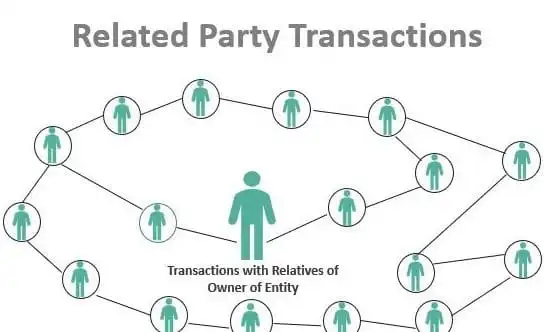Related party transactions, as defined by the Companies Act 2013, involve business dealings between a company and its affiliated entities or individuals. These transactions can raise worries about conflicts of interest and have significant financial implications for the company.
The term related-party transaction refers to a deal or arrangement made between two parties who are joined by a preexisting business relationship or common interest. Companies often seek business deals with parties with whom they are familiar or have a common interest.

What is Related-Party Transaction?
A related party transaction is any transaction, contract, or arrangement that falls under the scope of:
- Section 188 of the Companies Act, 2013
- Indian Accounting Standard (IND AS) 24 as notified by the Central Government
In simpler terms, these are transactions that occur between two parties who are connected to each other. This connection can be through common ownership, control, or influence. Examples of related parties include individuals, companies, or entities.
To maintain transparency and accountability, regulations and accounting standards typically mandate that companies disclose the nature and extent in detail of related party transactions in their financial statements. In India, Section 188 of the Companies Act 2013 provides specific guidelines and regulations for such transactions.
Related Party Transactions in India
In India, various regulations clearly outline the definition of a related party transaction. It helps to ensure that they are conflict-free. In the case of a company, it helps to ensure that it does not negatively affect the shareholders’ value or its profits.
The Institute of Chartered Accountants of India (ICAI) introduced Accounting Standard 18- ‘Related Party Disclosures’ and made it mandatory for businesses to report related party transactions in the financial statements. Apart from this, various laws refer to these transactions.
What is Related Party U/S Section 2(76) of Companies Act, 2013)?
A “related party” of a company refers to:
- A director or their relative
- A key managerial personnel or their relative
- A firm where a director, manager, or their relative is a partner
- A private company where a director, manager, or their relative is a member or director
- A public company where a director or manager is a director and, together with their relative, holds more than 2% of the paid-up share capital.
- Any corporate entity whose board of directors, managing director, or manager routinely acts on the directions of a director or manager
- Any person whose directions a director or manager is accustomed to act on (unless the person is giving advice or directions in a professional capacity)
- Any company that is a holding, subsidiary, or associate company of the company, or a subsidiary of a holding company to which it is also a subsidiary, or an investing company or a venture company
- Any other person as may be prescribed.
Regulatory Framework for Related Party Transactions under SEBI Clause 49
SEBI Clause 49 establishes specific regulatory requirements for related party transactions. It defines a related party transaction as any transfer of services, resources, or obligations between a company and a related party. This definition extends beyond the scope of the Companies Act 2013, including close family members of directors or key managerial personnel and private companies where directors or key managerial personnel, along with their relatives, have significant influence.
Section 40 A (2) in the Income Tax Act, 1961
A notification that a related party transaction took place during the year serves no function unless one is aware of the terms of the transaction and the tax consequences.
Section 40 A(2) of the Income Tax Act disallows the expenditure incurred with related parties if the assessing officer finds that the expenditure is unnecessary and unfair.
FAQs
Who is considered a Related Party?
A Related Party includes:
Directors or key managerial personnel and their relatives
Subsidiary, associate, and joint venture companies
Significant shareholders holding a specified percentage of shares
Entities over which related parties have control or significant influence
Why are Related Party Transactions regulated?
RPTs are regulated to prevent conflicts of interest, ensure transparency, and protect the interests of shareholders and stakeholders. They ensure that transactions are conducted at arm’s length and are not detrimental to the company.